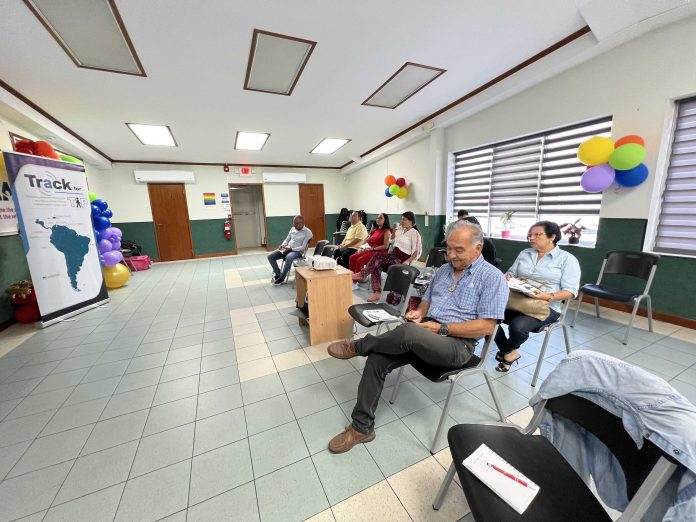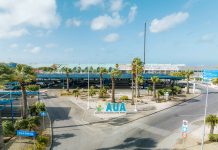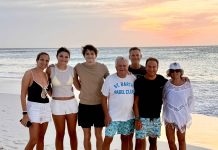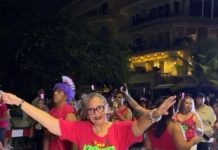It is essential for the community to be aware of the difference between human trafficking and human smuggling. The first is a crime against the human rights of a person, and the second is a crime against a country or state. And for the National Coordinator againsta human trafficking, Jeanette Richardson Baars, it is crucial for the press to also understand the difference – which is big.
This was also the reason why the press was included in the information cycle on human trafficking which UNODC – United Nations Office on Drugs and Crime – held in Aruba. It regards the TRACK4TIP which stands for ‘transforming alerts into criminal justice responses to combat trafficking in persons within migration flows’.
TRACK4TIP is a three-year initiative by UNODC with support of the Office for Monitoring and Combating Human Trafficking of the U.S. State Department. The project is directed to eight countries in South America and the Caribbean, with regional and national actions. Curaçao and Aruba form part of this initiative. The general goal is to elevate the way in which Justice in the specific countries responds to human trafficking and the flow of migration.
Lourdes Gutiérrez from Panama and Lissette Reyes from the Dominican Republic are UNODC executives, who guide the presentations in collaboration with the Centre for Coordination on Human Trafficking and Smuggling, and HIAS, Hebrew Immigrant Aid Society which is also active in Aruba to provide support particularly to Venezuelan migrants and refugees.
Members of the Police Force, the intelligence unit in Human Trafficking (TIP), the investigative unit of TIP, the victim assistance office, the Department of Social Affairs, Interpol and the National Bureau of Counter-terrorism all participate in the three day training, during which they did analysis and practical exercises based on real cases. As such, the presentations were multidisciplinary, focused on the victim in order to identify, prevent and pursue cases of human trafficking.
To achieve this, TRACK4TIP proposed the implementation of seven main objectives organized under three specific goals which together make it easier for the countries to fortify the way in which their judicial entities respond in cases of human trafficking. It is focused on Venezuelans, who are the biggest migrant group in these countries, which also include Peru, Ecuador, Colombia, Brazil, Trinidad & Tobago, and the Dominican Republic.
Even though the presentation given to journalists was more general, the organizers felt that it is essential to understand the role of the press in this big problem, particularly the way in which the press deals with victims. This is because many times the victims are exposed in the press, without being aware of their trauma and vulnerability, while this can be an obstacle for them to help authorities pursue those trying to traffic them.
The life of a human trafficking victim, which is modern slavery, is in danger – for their freedom when they are forced to do work or acts against their human rights, and they also lack safety because they are in the hands of people who make sure they aren’t safe in order to keep dominating them. And modern slavery is one of the most lucrative businesses currently. Next to drug and weapons trafficking, human trafficking is the biggest organized crime, and often goes in combination with the other two, Reyes explained.
Smuggling can become trafficking
Jeannette Baars Richardson says that one has to realized that there exists also the reality of undocumented migrants who pay to enter our country illegally. They partake in smuggling, and this is a crime against Aruba. Put there is a big danger that the people who use a smuggler can and do become victims of human trafficking, particularly because like the human trafficking business, there are more actors involved.
The knowledge that a person entered Aruba illegally can easily be used to force them to do work that can be qualified as abuse. For example make them go work in construction without paying wages, without benefits and without rest. This is something that authorities noticed is taking place in Aruba, especially among male undocumented migrants. The danger for women and female teenagers is forced prostitution.
But another phenomenon which was noticed also in Aruba is how families start participating in the trafficking of youth, even children, to bring in money. Often they go into drug sales or prostitution. According to Baars-Richardson, poverty plays a big role. Aside from families victimizing their children, young people can also become a victim to others, through contacts on social media, where so-called ‘groomers’ can guide them to produce money through trafficking.
















